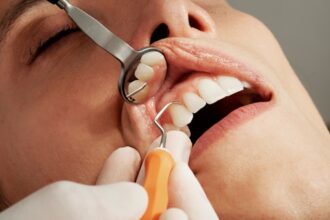The intricate relationship between nutrition and physical health has become increasingly evident in 2024 as advanced research continues unveiling the profound impact of macro and micronutrients on recovery processes, immune function, and tissue regeneration. Modern nutritional science demonstrates that strategic dietary choices directly influence cellular repair mechanisms, inflammatory responses, and the body’s ability to defend against pathogens. Healthcare professionals and nutritionists worldwide recognize that optimal nutrient intake represents the cornerstone of preventive medicine and therapeutic intervention.
Recent clinical studies from leading medical institutions reveal that proper nutritional support can accelerate recovery times by up to 40 percent following injury or illness, while inadequate nutrient intake significantly impairs immune response and delays healing processes. The contemporary understanding of nutrition extends far beyond basic caloric requirements, encompassing complex interactions between various nutrients and their synergistic effects on physiological functions.
The global health landscape in 2024 emphasizes personalized nutrition strategies based on individual genetic profiles, metabolic characteristics, and specific health conditions. This precision nutrition approach revolutionizes how medical professionals prescribe dietary interventions for recovery enhancement, immune system optimization, and tissue repair acceleration. Understanding these nutritional principles empowers individuals to make informed dietary decisions that profoundly impact their health outcomes and quality of life.
Understanding Macronutrients in Recovery and Repair
The Critical Role of Protein in Tissue Regeneration
Protein serves as the fundamental building block for tissue repair and regeneration, providing essential amino acids required for synthesizing new cellular structures and replacing damaged tissues. During recovery periods, protein requirements increase substantially as the body demands additional amino acids for wound healing, muscle reconstruction, and immune cell production. Medical research indicates that inadequate protein intake during recovery can extend healing time by several weeks and compromise the structural integrity of newly formed tissues.
Complete proteins containing all nine essential amino acids prove particularly valuable for recovery support. Sources such as lean meats, fish, eggs, and dairy products deliver comprehensive amino acid profiles that optimize tissue repair processes. Plant based complete proteins including quinoa, soy products, and strategically combined legumes with whole grains offer excellent alternatives for those following vegetarian or vegan dietary patterns.
The timing and distribution of protein intake throughout the day significantly impacts recovery efficiency. Sports medicine specialists recommend consuming 25 to 30 grams of high quality protein every three to four hours during active recovery phases. This consistent protein availability ensures continuous amino acid supply for ongoing repair processes while preventing muscle protein breakdown during extended periods without food intake.
Leucine, a branched chain amino acid, plays a particularly crucial role in stimulating muscle protein synthesis and accelerating recovery from exercise induced damage. Research demonstrates that consuming 2.5 to 3 grams of leucine per meal optimally triggers the mTOR pathway, initiating cellular repair mechanisms. Foods rich in leucine include chicken breast, salmon, cottage cheese, and whey protein supplements, making them valuable additions to recovery focused nutrition plans.
Carbohydrates as Energy Currency for Healing
Carbohydrates provide the primary energy source fueling recovery processes and supporting immune system function. During tissue repair and immune responses, cellular energy demands increase dramatically, requiring adequate carbohydrate availability to maintain these vital processes. Complex carbohydrates from whole grains, vegetables, and legumes deliver sustained energy release while providing additional beneficial compounds including fiber, vitamins, and phytonutrients.
Glycogen replenishment following physical stress or illness proves essential for maintaining energy levels and supporting continued recovery activities. Medical professionals recommend consuming 1.2 grams of carbohydrates per kilogram of body weight within the first hour following intense physical activity or during acute recovery phases. This strategic carbohydrate timing maximizes glycogen synthesis rates and accelerates recovery processes.
The glycemic index of consumed carbohydrates influences inflammation levels and recovery outcomes. Low to moderate glycemic index foods promote stable blood sugar levels, reducing inflammatory responses that can impair healing. Sweet potatoes, oatmeal, brown rice, and quinoa represent excellent carbohydrate sources that provide sustained energy without triggering excessive insulin responses that might compromise recovery processes.
Dietary fiber from carbohydrate sources supports digestive health and nutrient absorption during recovery periods. Soluble fiber helps regulate blood sugar levels and cholesterol while promoting beneficial gut bacteria growth. Insoluble fiber maintains digestive regularity, preventing constipation that often accompanies reduced physical activity during recovery. Healthcare providers recommend gradually increasing fiber intake to 25 to 35 grams daily while ensuring adequate fluid consumption.
Strategic Fat Intake for Inflammation Management
Dietary fats play multifaceted roles in recovery and immune function, serving as energy sources, hormone precursors, and modulators of inflammatory responses. Omega 3 fatty acids from fish oil, flaxseeds, and walnuts demonstrate powerful anti inflammatory properties that accelerate healing and reduce excessive inflammation that can impair recovery. Clinical trials show that supplementing with 2 to 3 grams of omega 3 fatty acids daily significantly reduces recovery time and improves tissue repair quality.
The balance between omega 3 and omega 6 fatty acids critically influences inflammatory processes during recovery. Modern Western diets typically contain excessive omega 6 fatty acids from processed foods and vegetable oils, creating pro inflammatory conditions that hinder healing. Nutrition experts recommend maintaining an omega 6 to omega 3 ratio between 2:1 and 4:1 for optimal recovery support, achieved through reducing processed food consumption while increasing cold water fish, nuts, and seeds intake.
Medium chain triglycerides found in coconut oil and MCT supplements provide rapidly available energy that doesn’t require extensive digestive processing. This makes MCTs particularly valuable during recovery when digestive function may be compromised. Research indicates that consuming 15 to 30 grams of MCTs daily can improve energy levels and support metabolic function during recovery periods without contributing to fat storage.
Monounsaturated fats from olive oil, avocados, and nuts support cardiovascular health and provide vitamin E, a crucial antioxidant for tissue repair. These healthy fats also enhance absorption of fat soluble vitamins A, D, E, and K, which play essential roles in immune function and healing processes. Including moderate amounts of these fats with meals optimizes nutrient absorption and provides sustained energy for recovery activities.
Micronutrients: The Catalysts of Cellular Repair
Essential Vitamins for Immune Function and Healing
Vitamin C stands as perhaps the most recognized nutrient for immune support and tissue repair, serving multiple critical functions in recovery processes. This water soluble vitamin acts as a powerful antioxidant, protecting cells from oxidative stress during inflammatory responses while supporting collagen synthesis essential for wound healing and tissue integrity. Daily requirements increase substantially during illness or recovery, with therapeutic doses ranging from 500 to 2000 milligrams divided throughout the day.
Vitamin D functions as both a vitamin and hormone, profoundly influencing immune system regulation and bone health during recovery periods. Deficiency in vitamin D, affecting over 40 percent of adults globally, significantly impairs immune function and delays healing processes. Optimal blood levels between 30 and 50 ng/mL support robust immune responses and accelerate recovery. Supplementation with 1000 to 4000 IU daily, adjusted based on blood levels, helps maintain adequate vitamin D status, particularly during winter months or limited sun exposure.
B complex vitamins collectively support energy metabolism, nervous system function, and cellular repair processes crucial for recovery. Thiamine, riboflavin, and niacin facilitate energy production from macronutrients, while vitamin B6 supports immune cell production and protein metabolism. Vitamin B12 and folate enable DNA synthesis and red blood cell formation, essential for oxygen delivery to healing tissues. Comprehensive B complex supplements or diverse whole food sources ensure adequate intake of these vital nutrients.
Vitamin A and its precursor beta carotene support immune system function and epithelial tissue integrity, particularly important for respiratory and digestive tract health. This fat soluble vitamin regulates immune cell differentiation and antibody production while maintaining barrier functions that prevent pathogen entry. Food sources including sweet potatoes, carrots, spinach, and liver provide bioavailable forms of vitamin A that support recovery processes without risk of toxicity associated with excessive supplementation.
Vitamin E functions as a lipid soluble antioxidant protecting cell membranes from oxidative damage during inflammatory responses. This vitamin particularly benefits recovery from exercise induced muscle damage and supports immune function in older adults. Natural vitamin E sources including almonds, sunflower seeds, and wheat germ oil provide mixed tocopherols and tocotrienols that offer superior biological activity compared to synthetic supplements.
Mineral Support for Structural Repair and Function
Zinc emerges as a critical mineral for immune function, wound healing, and protein synthesis during recovery periods. This trace element participates in over 300 enzymatic reactions, including those involved in DNA synthesis, cell division, and immune cell function. Zinc deficiency significantly impairs wound healing and increases infection susceptibility. Therapeutic supplementation with 15 to 30 milligrams of zinc daily during acute illness or recovery can reduce duration and severity of symptoms while supporting tissue repair.
Iron plays fundamental roles in oxygen transport, energy production, and immune cell function, making adequate intake essential for recovery support. However, iron metabolism becomes complex during inflammation, with the body sequestering iron to limit pathogen access. This adaptive response can lead to functional iron deficiency despite normal storage levels. Healthcare providers increasingly use comprehensive iron panels including ferritin, transferrin saturation, and inflammatory markers to guide supplementation decisions during recovery.
Magnesium participates in hundreds of biochemical reactions including protein synthesis, muscle function, and energy production vital for recovery processes. This mineral also modulates inflammatory responses and supports sleep quality, both crucial for optimal healing. Many individuals experience magnesium deficiency due to poor dietary intake and increased losses during stress or illness. Supplementation with 200 to 400 milligrams of well absorbed forms like magnesium glycinate or citrate can support recovery while avoiding digestive upset common with other forms.
Calcium requirements extend beyond bone health to include muscle contraction, nerve signaling, and blood clotting essential for wound healing. The interplay between calcium, vitamin D, and vitamin K2 determines bone mineralization and soft tissue health during recovery. Dietary sources including dairy products, fortified plant milks, and leafy greens provide calcium along with complementary nutrients that enhance absorption and utilization.
Selenium functions as a cofactor for glutathione peroxidase, a crucial antioxidant enzyme protecting cells from oxidative damage during inflammatory responses. This trace mineral also supports thyroid function and immune cell activity. Brazil nuts represent the richest dietary source, with just two nuts daily providing adequate selenium intake. Other sources include seafood, whole grains, and eggs, offering moderate amounts that contribute to daily requirements.
Specialized Nutrients for Enhanced Recovery
Antioxidants and Phytonutrients in Cellular Protection
Polyphenols from colorful fruits and vegetables demonstrate remarkable abilities to modulate inflammatory responses and protect cells during recovery processes. Anthocyanins from berries, resveratrol from grapes, and curcumin from turmeric exhibit potent anti inflammatory effects that complement traditional recovery interventions. Clinical studies indicate that consuming diverse polyphenol rich foods or targeted supplements can reduce inflammatory markers by 20 to 30 percent during recovery periods.
Glutathione, the body’s master antioxidant, plays crucial roles in detoxification, immune function, and cellular protection during recovery. While direct glutathione supplementation shows limited bioavailability, precursors including N acetylcysteine, alpha lipoic acid, and sulfur rich foods support endogenous glutathione production. Maintaining optimal glutathione levels proves particularly important during intense physical stress or illness when oxidative stress increases dramatically.
Carotenoids beyond beta carotene, including lutein, zeaxanthin, and lycopene, provide targeted antioxidant protection for specific tissues. Lutein and zeaxanthin concentrate in neural tissue and eyes, supporting recovery from neurological stress or visual strain. Lycopene accumulates in prostate tissue and skin, offering protection against oxidative damage in these organs. Consuming varied colored vegetables ensures broad spectrum carotenoid intake supporting comprehensive recovery.
Coenzyme Q10 functions as both an antioxidant and essential component of cellular energy production, making it particularly valuable for recovery support. This compound naturally declines with age and during statin medication use, potentially impairing recovery capacity. Supplementation with 100 to 200 milligrams of ubiquinol, the active form of CoQ10, can improve energy levels and reduce oxidative stress during recovery periods.
Amino Acids and Specialized Proteins
Glutamine represents the most abundant amino acid in muscle tissue and serves critical roles in immune function and intestinal health during recovery. Stress, illness, and intense physical activity rapidly deplete glutamine stores, potentially compromising recovery processes. Supplementation with 5 to 10 grams of L glutamine daily supports immune function, maintains intestinal barrier integrity, and accelerates muscle recovery following exercise or illness.
Arginine serves as a precursor for nitric oxide production, supporting blood flow and nutrient delivery to healing tissues. This conditionally essential amino acid becomes critically important during wound healing, with requirements increasing substantially following surgery or injury. Clinical protocols often include 15 to 30 grams of arginine daily for wound healing support, though individuals with certain viral infections should avoid high dose supplementation.
Collagen peptides provide specific amino acids including glycine, proline, and hydroxyproline that directly support connective tissue repair and joint health. Research demonstrates that consuming 10 to 15 grams of collagen peptides daily can improve skin elasticity, reduce joint pain, and accelerate recovery from exercise induced muscle damage. Marine collagen sources offer superior bioavailability compared to bovine sources, though both provide beneficial effects.
Branch chain amino acids including leucine, isoleucine, and valine specifically support muscle protein synthesis and reduce exercise induced muscle damage. Consuming 5 to 10 grams of BCAAs during or immediately after physical activity can reduce muscle soreness and accelerate recovery. However, whole protein sources generally provide superior overall benefits compared to isolated BCAA supplements for most recovery applications.
Hydration and Electrolyte Balance in Recovery
Optimal Fluid Management for Healing
Proper hydration stands as a fundamental yet often overlooked aspect of recovery nutrition, with even mild dehydration significantly impairing healing processes and immune function. Water facilitates nutrient transport to cells, removes metabolic waste products, and maintains blood volume essential for oxygen delivery to healing tissues. Healthcare professionals recommend consuming at least 35 milliliters of fluid per kilogram of body weight daily, with increased requirements during fever, wound drainage, or elevated metabolic demands.
The quality of consumed fluids impacts recovery outcomes, with pure water, herbal teas, and nutrient dense broths providing superior hydration compared to sugary beverages or alcohol. Bone broth particularly benefits recovery by providing electrolytes, amino acids, and minerals in easily absorbed forms. Green tea offers additional antioxidants and modest caffeine amounts that can support alertness without disrupting sleep patterns crucial for recovery.
Cellular hydration depends not only on fluid intake but also on electrolyte balance and cellular membrane integrity. Consuming adequate sodium, potassium, and magnesium ensures proper fluid distribution between intracellular and extracellular compartments. Coconut water provides natural electrolyte replacement, while adding unrefined sea salt to water creates simple electrolyte solutions supporting optimal hydration during recovery.
Electrolyte Replacement Strategies
Sodium regulation becomes particularly important during recovery from illness involving fever, vomiting, or diarrhea that cause substantial electrolyte losses. While excessive sodium intake contributes to hypertension in susceptible individuals, adequate sodium proves essential for maintaining blood pressure, nerve function, and fluid balance during recovery. Natural sources including Celtic sea salt or Himalayan pink salt provide sodium along with trace minerals absent in refined table salt.
Potassium works synergistically with sodium to maintain cellular membrane potential and support muscle function during recovery. Many individuals consume insufficient potassium relative to sodium, creating imbalances that impair recovery processes. Excellent potassium sources include bananas, sweet potatoes, spinach, and white beans, providing 400 to 900 milligrams per serving toward the daily recommendation of 2,600 to 3,400 milligrams.
Chloride, often overlooked among electrolytes, plays crucial roles in maintaining fluid balance and producing stomach acid necessary for nutrient absorption. Adequate chloride intake supports digestive function that may be compromised during illness or recovery. Table salt provides the primary dietary source of chloride, though tomatoes, lettuce, and celery also contribute meaningful amounts.
Nutritional Timing and Recovery Optimization
Strategic Meal Planning for Maximum Benefit
Nutrient timing significantly influences recovery outcomes, with specific windows offering enhanced absorption and utilization of consumed nutrients. The post exercise or post stress period represents a critical opportunity for recovery optimization, with the first 30 to 60 minutes offering peak rates of glycogen replenishment and protein synthesis. Consuming balanced meals containing carbohydrates and protein during this window accelerates recovery and reduces muscle damage markers.
Circadian rhythm considerations increasingly inform nutritional timing recommendations, with research demonstrating that aligning food intake with natural biological rhythms optimizes metabolic function and recovery processes. Consuming larger meals earlier in the day supports energy availability for daytime recovery activities while allowing digestive rest during sleep when repair processes peak. Time restricted feeding approaches limiting food intake to 8 to 12 hour windows show promise for improving metabolic health and recovery capacity.
Pre sleep nutrition requires careful consideration, balancing the need for overnight recovery support with sleep quality maintenance. Small portions of casein protein or Greek yogurt provide sustained amino acid release throughout the night, supporting muscle recovery without disrupting sleep. Tart cherry juice naturally contains melatonin and anti inflammatory compounds that simultaneously support sleep quality and recovery processes.
Supplement Integration and Whole Food Synergy
While whole foods should form the foundation of recovery nutrition, targeted supplementation can address specific deficiencies or provide therapeutic doses difficult to achieve through diet alone. However, nutrients from whole foods generally demonstrate superior bioavailability and synergistic effects compared to isolated supplements. The food matrix including fiber, phytonutrients, and complementary nutrients enhances absorption and utilization of primary nutrients.
Supplement quality varies dramatically, with many products containing poorly absorbed forms or inadequate doses of active ingredients. Third party testing for purity and potency ensures supplement safety and efficacy. Healthcare providers increasingly recommend pharmaceutical grade supplements or specific brands meeting rigorous quality standards for therapeutic applications during recovery.
Potential interactions between supplements and medications require careful consideration during recovery periods. Many nutrients can enhance or inhibit medication effectiveness, potentially compromising treatment outcomes. Vitamin K interferes with warfarin anticoagulation, while calcium reduces certain antibiotic absorption. Professional guidance ensures safe integration of nutritional supplements with medical treatments during recovery.
Special Considerations for Different Recovery Scenarios

Post Surgical Nutrition Support
Surgical recovery creates unique nutritional demands requiring specialized dietary approaches to optimize healing while preventing complications. Protein requirements increase to 1.5 to 2.0 grams per kilogram of body weight to support wound healing and maintain lean body mass during reduced activity. Spreading protein intake across six small meals prevents overwhelming digestive capacity while ensuring continuous amino acid availability.
Specific nutrients prove particularly important following surgery, with vitamin C, zinc, and arginine demonstrating clear benefits for wound healing acceleration. Vitamin C doses of 500 to 1000 milligrams twice daily support collagen synthesis, while 15 to 30 milligrams of zinc promotes epithelialization and immune function. Arginine supplementation at 15 to 30 grams daily enhances wound healing through improved blood flow and immune support.
Preventing surgical site infections requires supporting immune function through comprehensive nutrition including probiotics, prebiotics, and immune supporting nutrients. Probiotic supplementation with multiple strains at doses exceeding 10 billion CFU daily reduces infection risk and antibiotic associated complications. Prebiotic fibers from foods or supplements feed beneficial bacteria, maintaining gut health crucial for immune function.
Athletic Recovery and Performance
Athletes and physically active individuals face unique recovery challenges requiring specialized nutritional strategies to maintain performance while preventing overtraining syndrome. The inflammatory response following intense exercise, while necessary for adaptation, requires careful management through anti inflammatory nutrition to prevent excessive tissue damage and delayed recovery.
Carbohydrate periodization strategies align intake with training demands, providing higher amounts during intense training periods while reducing intake during recovery or low intensity phases. This approach optimizes metabolic flexibility and body composition while ensuring adequate energy for recovery processes. Post workout carbohydrate intake of 1.0 to 1.2 grams per kilogram body weight within the first hour optimizes glycogen replenishment.
Antioxidant supplementation in athletes remains controversial, with some research suggesting high doses might impair training adaptations. However, obtaining antioxidants from whole food sources appears beneficial without compromising adaptation. Tart cherry juice, pomegranate juice, and berry consumption demonstrate recovery benefits without interfering with training responses.
Conclusion: Integrating Nutritional Science for Optimal Recovery
The profound influence of macro and micronutrients on recovery, immune function, and tissue repair underscores nutrition’s central role in health optimization and disease recovery. Understanding these complex interactions empowers individuals and healthcare providers to develop targeted nutritional strategies that accelerate healing, strengthen immune defenses, and optimize physical function during recovery periods.
The evolution of nutritional science continues revealing new insights into how specific nutrients and dietary patterns influence recovery outcomes. Personalized nutrition approaches considering individual genetics, microbiome composition, and metabolic characteristics promise even more effective recovery support strategies. As research advances, the integration of nutrition with conventional medical treatments becomes increasingly sophisticated, offering synergistic benefits that exceed either approach alone.
Successful recovery nutrition requires balancing scientific evidence with practical implementation, considering individual preferences, cultural factors, and resource availability. While optimal nutrition can significantly enhance recovery outcomes, it works best as part of comprehensive recovery programs including appropriate rest, stress management, and medical care when needed.
The future of recovery nutrition lies in precision approaches that tailor interventions to individual needs while maintaining focus on whole food, nutrient dense dietary patterns that have supported human health throughout history. By combining traditional wisdom with modern scientific understanding, we can optimize recovery processes and build resilience against future health challenges through strategic nutritional support.













